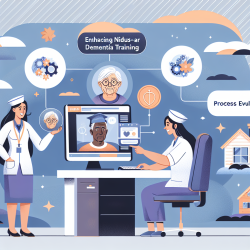In light of the COVID-19 pandemic, the field of behavior analysis has had to adapt rapidly to virtual modalities for service delivery and supervision. The research article "Acceptability and Feasibility of Virtual Behavior Analysis Supervision" provides valuable insights into the experiences of BCBA/BCaBA trainees with virtual supervision during the pandemic. This blog will explore how speech-language pathologists (SLPs) can leverage these findings to enhance their virtual supervision practices, thereby improving outcomes for children.
Key Findings from the Research
The study surveyed 94 BCBA/BCaBA trainees and found that:
- Participants were generally satisfied with virtual supervision, indicating high satisfaction scores for both individual and group supervision.
- There was a significant preference for in-person or hybrid supervision models, though virtual supervision was still deemed feasible and acceptable.
- Variables such as the length of the supervisory relationship and the age of the trainee influenced satisfaction and perceived effectiveness.
Practical Implications for SLPs
SLPs can apply these findings to improve their virtual supervision practices in several ways:
- Flexibility and Accessibility: Virtual supervision allows for greater flexibility in scheduling and reduces travel time, making it easier for both supervisors and trainees to engage in regular, meaningful interactions.
- Enhanced Observation: Virtual platforms enable discreet observation, which can reduce client reactivity and provide more accurate data on trainee performance and client outcomes.
- Resource Utilization: Leveraging virtual tools like screen sharing, video recording, and real-time feedback can enhance the learning experience and provide valuable resources for trainee development.
Recommendations for Effective Virtual Supervision
Based on the study's findings and existing best practices, here are some recommendations for SLPs:
- Establish Clear Communication Channels: Use video conferencing tools for face-to-face interactions to build rapport and provide real-time feedback.
- Utilize Asynchronous Resources: Develop a library of video models and training materials that trainees can access at their convenience.
- Focus on Skill Development: Use virtual supervision sessions to focus on specific skills and provide targeted feedback to ensure competency.
- Maintain Confidentiality: Ensure that all virtual interactions comply with HIPAA and other relevant regulations to protect client information.
Encouraging Further Research
While the study provides a preliminary understanding of virtual supervision's acceptability and feasibility, further research is needed to explore its long-term impact on trainee competency and client outcomes. SLPs are encouraged to contribute to this growing body of knowledge by conducting their own studies and sharing their findings with the broader community.
To read the original research paper, please follow this link: Acceptability and Feasibility of Virtual Behavior Analysis Supervision.










